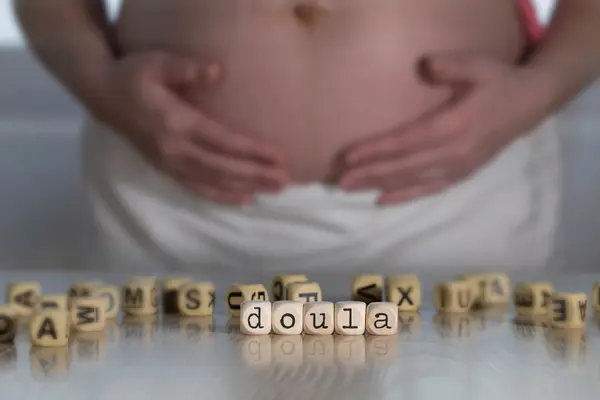Pregnancy can be confusing, and so can pregnancy symptoms. Maybe you’ve missed a period or you’ve just got a gut feeling (no pun intended). While pregnancy tests and ultrasounds are the only definitive way to know if you’re pregnant, you can look out for other signs and pregnancy symptoms to help answer your questions before the test and during the three trimesters of pregnancy.
Just like every pregnancy is different, symptoms vary between each person, including when you start to experience them. If you have any concerns about the symptoms you are experiencing, talk to your doctor.
Very Early Pregnancy Symptoms
Early pregnancy symptoms can start a few days following conception or even a few days leading up to your first missed period. It takes about 2 to 3 weeks after sex for pregnancy to happen, and those days in between can either fill you with excitement or nervousness. You could be eager to take an at-home test, but depending on timing, it may be too soon for the test to tell.
Early Signs You Might Be Pregnant
- Missed period
- Sensitive and tender breasts
- Fatigue
- Smell sensitivity
- Light spotting
- Increase in body temperature
- Food cravings
- Frequent urination
- Nausea
First Trimester Pregnancy Symptoms
Your first trimester refers to the beginning of your pregnancy from the first week until week 12 of your pregnancy. During these first few weeks, you’ll need to attend your first few prenatal visits, start taking vitamins, and start building your registry. (Amazon is a great place to start!) This is an exciting time, but be prepared for the symptoms that are to follow.
Nausea and Morning Sickness
While morning sickness is one of the most recognized symptoms, nausea can occur at any time of the day.
Mood Swings
With the increase of hormones in your body during early pregnancy you may notice how unusually emotional you are. This is normal.
Sore Breasts
The hormonal changes might make your breasts sensitive, sore, and change in size/appearance.
Heartburn
Heartburn can start during the first trimester and often continues throughout your pregnancy.
Dehydration
Dehydration leads to lower levels of amniotic fluid, which can influence the baby’s development, lead to preterm labor, and can affect the production of breast milk. Consider increasing your water intake to ensure you’re not dehydrated.
Back Pain
Back pain is a normal, uncomfortable, part of pregnancy for most women, and back pain is commonly linked to an increase in hormones and stress.
Constipation
Constipation is one of the most common, unpleasant parts of pregnancy. Hormonal changes cause your digestive system to slow down, which can lead to constipation. Increasing your fiber intake can help.
Cramps
You may feel some mild cramping in your lower abdomen resembling menstrual cramps at infrequent times as your body prepares for your growing baby. Don’t panic, it’s natural.
Cravings and Aversions
You may be prone to become more sensitive to certain odors, and your sense of taste might change. Like most other pregnancy symptoms, your change in preferences can be blamed on those hormonal changes.

Second Trimester Pregnancy Symptoms
Your second trimester takes place from weeks 13 through 26. Once you make it to the second trimester, you typically won’t experience as many pregnancy symptoms.
Bloating
Again, blame this on the hormones.
Side Pains
Your womb is expanding, and this can cause stretching leading to round ligament pain. You may feel pain in your lower tummy, groin, or hips on one or both sides.
Increased Urination
The amount of blood in your body increases during pregnancy, causing your kidneys to process extra fluid that ends up in your bladder. To avoid dehydration, drinking plenty of fluids is important, but this can contribute to increased urination as well.
Nosebleeds
Due to the increase in hormones and blood volume, you’ll gain during your pregnancy, nosebleeds are a common pregnancy symptom. One in five pregnant women experience nosebleeds during their second trimester. You may not be able to prevent it completely, but the use of a humidifier could help.
Third Trimester Pregnancy Symptoms
You’re almost at the finish line. The third trimester is your final few weeks of pregnancy from week 27 until you give birth. As your pregnancy comes to an end, symptoms begin to look a lot different. Instead of identifying pregnancy symptoms, you’ll want to be looking for labor symptoms.

False Contractions
This can also include Braxton-Hicks contractions which is your body’s way of preparing for labor. You may feel these irregular contractions until real labor starts.
Headaches
Smells, a lack of sleep, stress, overheating, and other factors can all trigger headaches. It helps if you try to stick to regular eating, exercise, and a sleep routine, and give yourself some much-needed quiet time to de-stress.
Loss of Mucus Plug
You may notice discharge or even experience a bloody show. This means labor is just around the corner, and you could be dilated.
Insomnia
As your belly continues to grow, you’re limited when it comes to sleeping positions. The last trimester of your pregnancy can be physically, emotionally, and mentally challenging, which can make sleep difficult as well.
Pelvic Pressure
By the 36th week, you may find yourself waddling around as your baby drops into your pelvis. This refers to the slight cramping you may feel as your cervix begins to thin out and dilate.

The Fourth Trimester
The “fourth trimester,” better known as the postpartum or postnatal period, begins as soon as you give birth to your baby and lasts until they are about three months old. For all of your postpartum needs, check out our Postpartum Manual.


